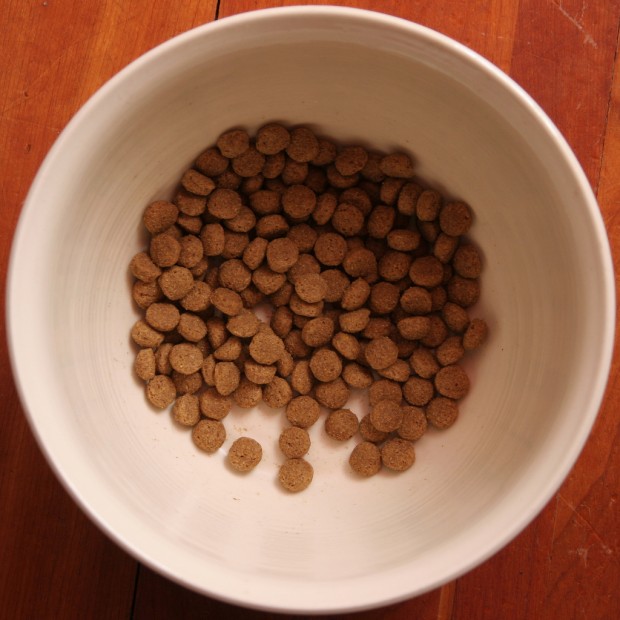


(Photo by JnL )
Skipping the Walmart lineup, Toronto lawyer Kate Macdonald shops for her wheaten terrier, Liffie, at Global Pet Foods. At almost two years old, Liffie has only been fed one type of food: a specialty mix advertised as “fresh duck, chicken, lamb, whole eggs and real Wisconsin cheese.”
“She was fed Fromm’s Puppy by the breeder when she was first born. The breeder recommended it for nutritional reasons, and we have stuck with it.”
Now that Liffie is an adult dog, Macdonald buys the Adult formula Fromm pet food about every three months. That decision costs her around $300 a year, contributing to the reported $6.5 billion industry surrounding pets. A 33lb bag of Fromm’s adult gold dog food retails for $75. For a slightly larger bag at 35 lb, Alpo cookout classics goes for only $23.63 at Walmart.
In fact, the most significant difference between Alpo and Fromm’s is their price.
Marion Nestle and Maldon C. Nesheim argue in their book, Feed Your Pet Right that the first five ingredients listed on a bag of dog food are generally the same. This means that the bag of dog food from the grocery store is just as nutritious as the premium pet store brand that claims it is organic, uses only whole chicken breast, and is gluten free.
Alpo cookout classics advertises itself as using pork, chicken, veggie, and steak. Fromm’s Gold dog food is labelled as using real ingredients with added probiotic that is said to help aid digestion and salmon oil for a healthy dog coat. All of these ingredients could be part of a human diet.
Even more common in pet stores are the presence of dog foods that advertise health claims like the presence of antioxidants, glucosamine, and chondroitin. None of these ingredients have been tested for their value to dogs, so it comes down to owner to decide whether or not they think the added health benefit is helpful.
Nestle and Nesheim argue that these health claims are impossible to verify.
“…The industry that makes pet foods is unusually closed and secretive. We were refused many requests to visit and hardly any industry representatives agreed to talk to us on the record.”
Fromm’s Gold is an exception to the many manufacturers who prefer to keep their business behind closed doors. Fromm’s advertises itself as FDA approved and says it is made within a USDA-inspected plant.
Although Food and Drug Administration requires that pet food follow certain nutritional guidelines, the Canadian government does not assess animal food. Manufacturers are responsible for making sure their products are quality.
There is however a NGO formed to help moderate manufacturers in Canada. The Pet Food Association of Canada (PFAC) represents pet food manufacturers and asks each one to follow guidelines.
The standards set by PFAC are similar to the American guidelines, which means it prohibits the use of dangerous content and must meet animals’ nutritional needs.
The Pet Industry Joint Advisory Council of Canada reports that about one half of all Canadian households has some kind of pet in 2012.
Though the health benefits between premium dog food and grocery store brands go unnoticed, Macdonald seeing Liffie as a part of her family will continue to pay the difference.






